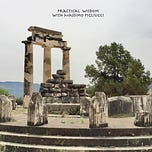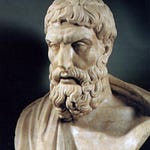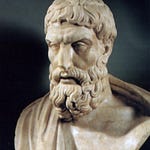“There are many who labor on the other side of the question, and condemn souls to death, as if they were criminals capitally convicted; nor have they any other reason to allege why the immortality of the soul appears to them to be incredible, except that they are not able to conceive what sort of thing the soul can be when disentangled from the body; just as if they could really form a correct idea as to what sort of thing it is, even when it is in the body; what its form, and size, and abode are; so that were they able to have a full view of all that is now hidden from them in a living body, they have no idea whether the soul would be discernible by them, or whether it is of so fine a texture that it would escape their sight.
Let those consider this, who say that they are unable to form any idea of the soul without the body, and then they will see whether they can form any adequate idea of what it is when it is in the body. For my own part, when I reflect on the nature of the soul, it appears to me a far more perplexing and obscure question to determine what is its character while it is in the body—a place which, as it were, does not belong to it—than to imagine what it is when it leaves it, and has arrived at the free aether, which is, if I may so say, its proper, its own habitation.”
(Tusculan Disputations, I.22)













Share this post